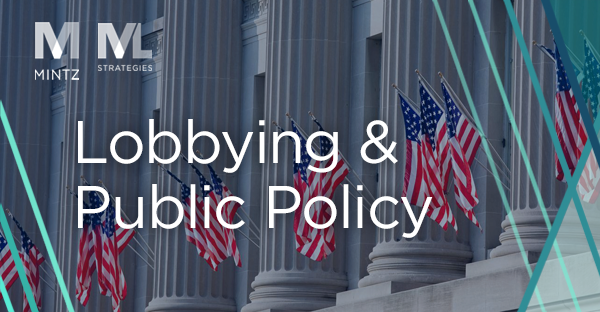
Trade Secrets
Viewpoints
Filter by:
California’s GenAI Data Training Compliance Law AB 2013: Challenges and Practical Next Steps for Protecting IP
January 15, 2026 | Alert | By Marguerite McConihe, Sam Cohen
California’s A.B. 2013 imposes new disclosure requirements for generative AI systems starting January 1, 2026. Learn who’s covered, what must be disclosed, compliance challenges, and practical steps to protect IP and avoid enforcement risks.
Restrictive Covenants in Private Equity Transactions
May 14, 2025 | Alert | By Garrett Galvin, David G. Conway, Katya Daniel, Benjamin Ferrucci, Tom J. Pagliarini
Restrictive covenants are unquestionably a significant deal consideration in M&A transactions. In the private equity context, a buyer is focused on restrictive covenants to protect its investment by binding the sellers and other recipients of material deal proceeds to obligations and restrictions for a certain period of time following the transaction. Restrictive covenants serve several purposes and are highly beneficial for a buyer; accordingly, absent any legal limitations and assuming sufficient consideration, a buyer is incentivized to impose restrictive covenants on as many selling parties as possible. However, and not surprisingly, sellers heavily negotiate their post-transaction restrictive covenant obligations to keep their business options as open as possible on a go-forward basis. The conflicting interests of buyers and sellers when it comes to restrictive covenants result in carefully negotiated covenants spread out over multiple transaction documents and employment agreements. This article discusses the common restrictive covenants used in private equity transactions, the importance of such covenants in the key transaction documents, and related enforcement considerations.
Joint Development Agreements and Trade Secrets - Sweat the Small Stuff
April 23, 2025 | Blog | By Brad M Scheller , Robert Sweeney
Learn how a joint development agreement (JDA) can impact trade secret protection, illustrated by Pemco Aircraft and Boeing’s case.
He Got the MrBeast Blueprint… and a Trade Secret Lawsuit
April 22, 2025 | Blog | By Brad M Scheller , Stephen Chen
A former IT contractor turned full-time employee at MrBeast YouTube LLC (“Beast”) — the content machine built by digital juggernaut, Jimmy Donaldson, aka MrBeast is accused of swiping thousands of confidential files, including trade secrets detailing how Donaldson and his team develops its uniquely successful videos.
Trade Secret Owners Need to Find the Facts Instead of Letting the Facts Find Them
March 14, 2025 | Blog | By Reza Dokhanchy, Laura Petrasky, Michael Renaud
Best Practices in Developing Winning IP Strategies for AI Companies
November 14, 2024 | Article | By Anthony de Fazekas, Terri Shieh-Newton
Trade Secret Thieves, Beware! The DTSA Can Reach You and Your Sales Around the Globe.
July 30, 2024 | Blog | By Michael Renaud, Brad M Scheller , Adam Samansky, Laura Petrasky
This month the Seventh Circuit in Motorola Sols., Inc. v. Hytera Commc’ns Corp. Ltd. upheld the Northern District of Illinois in finding that the Defend Trade Secrets Act (DTSA) has extraterritorial reach. Companies can seek relief when misappropriation occurs abroad and for the sales lost abroad when an act in furtherance of the trade secret misappropriation occurs in the United States.
In Split Vote, FTC Approves Controversial Final Rule Banning Most Post-Employment Non-Competes; Rule Already Subject to Challenge in Court
April 25, 2024 | Blog | By Talia Weseley, Danielle Bereznay, Bruce Sokler, Benjamin Ferrucci, David Barmak, Brad M Scheller , Geri Haight, Michael Arnold
How Your Trade Secret Could Help to Defend Against Claims of Patent Infringement
February 1, 2024 | Blog | By Adam Samansky, Peter Cuomo, Nicholas Armington , Stephen Chen
New York Widens its Employee Intellectual Property Protections
October 19, 2023 | Blog | By Geri Haight, Evan Piercey, Talia Weseley
I Spy a Trade Secret: Conducting Proper Trade Secret Asset Management Review to Avoid Sufficiency Failure in Litigation
April 5, 2023 | Blog | By Nicholas Armington , Michael Renaud, Jonathan Engler
Successful defense of trade secrets in litigation begins with evaluating valuable confidential information and steps taken to safeguard it before any disputes arise. Trade secret asset management allows companies to effectively frame misappropriation or theft claims and advance arguments at every stage of a trade secrets dispute.
FTC Hosts Forum on Proposed Rule to Ban Noncompete Clauses
March 2, 2023 | Blog | By Danielle Dillon, Marc Aspis
Avoiding Pitfalls: IP “Dos and Don’ts” for High-Tech Start Ups
February 27, 2023 | Blog | By Daniel Weinger, Frank Gerratana, Greg Penoyer
Starting a high-tech company is a difficult, exhausting, and thrilling endeavor – one in which founders will face seemingly endless challenges, deadlines, and make or break decisions. From a venture’s inception, founders face numerous decisions that if not thoughtfully considered can result in significant legal and financial risk.
Year in Review: The Most Popular IP Posts of 2022
January 5, 2023 | Blog | By Christina Sperry
Innovators developing IP strategies for 2023 are reflecting on last year’s key IP issues, including entity size designations for US patent applications, erasures of patent damage awards due to flawed expert opinions, and developments involving the ITC, artificial intelligence and machine learning, and inter partes reviews.
Open Question: Use of Stolen Trade Secrets May or May Not Qualify as a Predicate Act Under RICO
March 10, 2022 | Blog | By Adam Samansky, Michael McNamara, Nicholas Armington , Oliver Ennis
Since the passage of the Defend Trade Secrets Act (DTSA), trade secret owners have been able to use allegations of trade secret misappropriation under the DTSA to support civil claims under the Racketeer Influence and Corrupt Organizations Act (RICO). Specifically, DTSA violations that qualify as predicate acts can be used to show a pattern of racketeering activity, which may allow a trade secret owner to state civil claims under RICO, and thus take advantage of the substantial remedies that the RICO statute provides, including the potential for treble damages and attorney’s fees.
Benefits of and Best Practices for Protecting Artificial Intelligence and Machine Learning Inventions as Trade Secrets
February 10, 2022 | Blog | By Marguerite McConihe, Meena Seralathan
Trade Secret Misappropriation Not Sufficiently Plead Where Defendant Possessed but did Not Threaten to Disclose Trade Secret Information in Southern District of New York Case
January 25, 2022 | Blog | By Adam Samansky, Nicholas Armington
Fast Track to Justice for Trade Secret Theft at the ITC: New Senate Bill Would Expand ITC Authority to Curtail Trade Secret Theft by Foreign Governments
June 23, 2021 | Blog | By Michael Renaud, Rich Gervase, Nicholas Armington
Fact-Specific Inquiry: Deciding Between Trade Secret and Patent Protection
September 15, 2020 | Blog | By Adam Samansky, Nicholas Armington
Explore Other Viewpoints:
- Data Centers & Digital Infrastructure
- AI: The Washington Report
- Antitrust and Federal Regulation
- Appellate
- Arbitration, Mediation & Alternate Dispute Resolution
- Artificial Intelligence
- Awards
- Bankruptcy & Restructuring
- California Land Use
- Cannabis
- Class Action
- Complex Commercial Litigation
- Construction
- Consumer Product Safety
- Corporate Governance (ESG)
- Cross-Border Asset Recovery
- DEI Legal Developments
- Debt Financing
- Direct Investing (M&A)
- Diversity
- EB-5 Financing
- Education & Nonprofits
- Employment
- EnforceMintz
- Environmental (ESG)
- Environmental Enforcement Defense
- Environmental Law
- Environmental, Social, and Corporate Governance (ESG)
- FDA Regulatory
- FDA in Flux
- False Claims Act
- Federal Circuit Appeals
- Financial Institution Litigation
- Government Law
- Growth Equity
- Health Care
- Health Care Compliance, Fraud and Abuse, & Regulatory Counseling
- Health Care Enforcement & Investigations
- Health Care Transactions
- Health Information Privacy & Security
- IP Due Diligence
- IPRs & Other Post Grant Proceedings
- Immigration
- Impacts of a New US Administration
- Insolvency & Creditor Rights Litigation
- Institutional Investor Class Action Recovery
- Insurance & Financial Services
- Insurance Consulting & Risk Management
- Insurance and Reinsurance Problem-Solving & Dispute Resolution
- Intellectual Property
- Investment Funds
- Israel
- Licensing & Technology Transactions
- Life Sciences
- Litigation & Investigations
- M&A Litigation
- ML Strategies
- Managed Care
- Medicare, Medicaid and Commercial Coverage & Reimbursement
- Mergers & Acquisitions
- Patent Litigation
- Patent Prosecution & Strategic Counseling
- Pharmacy Benefits and PBM Contracting
- Portfolio Companies
- Privacy & Cybersecurity
- Private Client
- Private Equity
- Pro Bono
- Probate & Fiduciary Litigation
- Products Liability & Complex Tort
- Projects & Infrastructure
- Public Finance
- Real Estate Litigation
- Real Estate Transactions
- Real Estate, Construction & Infrastructure
- Retail & Consumer Products
- Securities & Capital Markets
- Securities Litigation
- Social (ESG)
- Special Purpose Acquisition Company (SPACs)
- Sports & Entertainment
- State Attorneys General
- Strategic IP Monetization & Licensing
- Sustainable Energy & Infrastructure
- Tax
- Technology
- Technology, Communications & Media
- Technology, Communications & Media Litigation
- Trade Secrets
- Trademark & Copyright
- Trademark Litigation
- Unified Patent Court (UPC)
- Value-Based Care
- Venture Capital & Emerging Companies
- White Collar Defense & Government Investigations
- Women's Health and Technology








